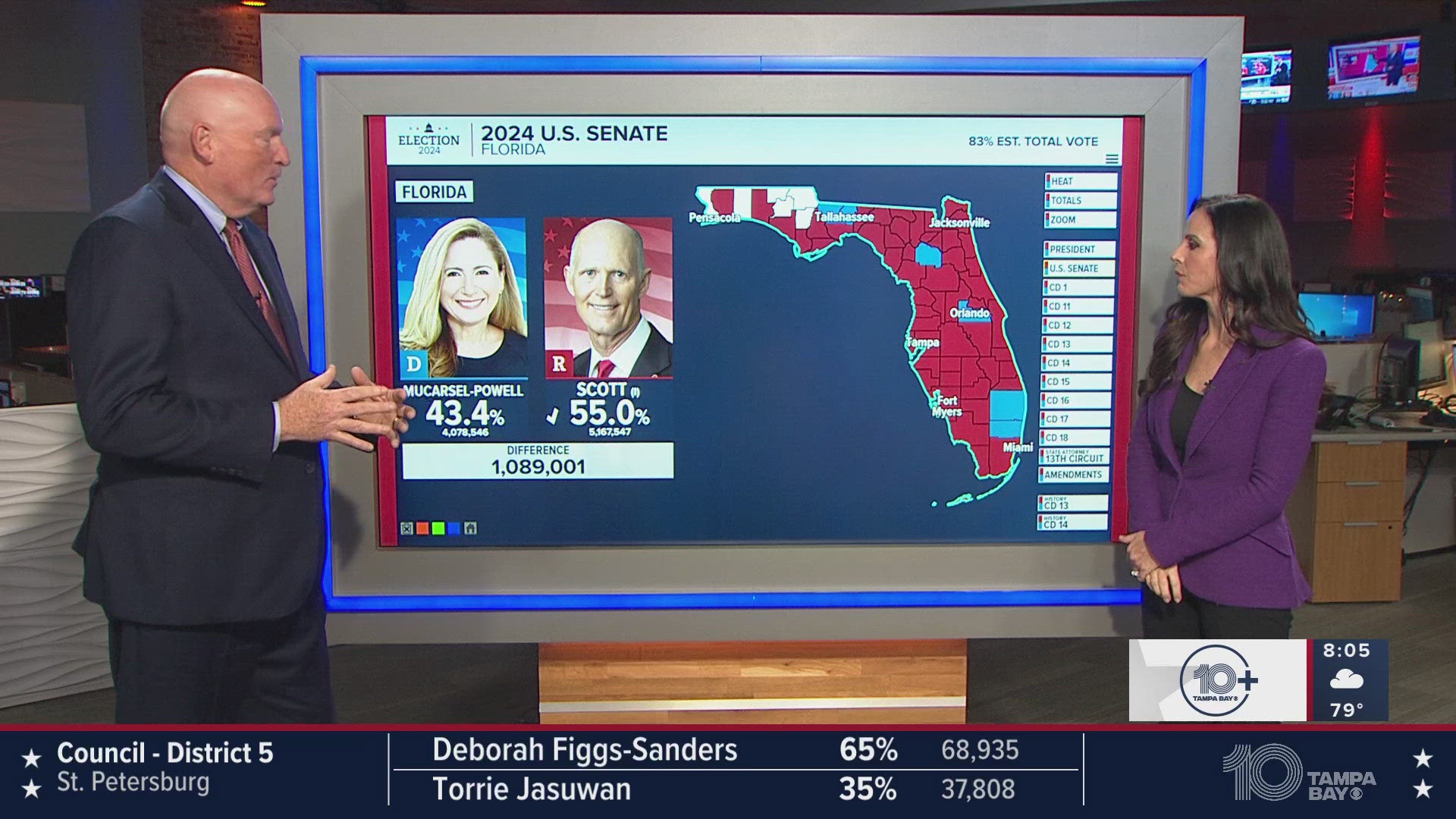2024 U.S. Senate Race Results: Republicans Take Control with Key Wins
The 2024 U.S. Senate race has led to a shift in control as Republicans gained the majority, marking a significant political change. This outcome is attributed to a series of crucial victories in battleground states where Republicans flipped key Democratic-held seats and held onto Republican incumbents. The results showcase an intense political landscape with surprising upsets and historic firsts, including landmark wins by new Democratic and Republican senators.

Republicans Secure Senate Majority After Four Years
Late on Tuesday night, Republicans officially regained control of the U.S. Senate for the first time in four years. This victory came after the GOP won multiple Democratic-held seats across the country, including West Virginia, where Republican Jim Justice replaced retiring Democrat Joe Manchin. Justice’s victory signaled early Republican momentum, contributing to the party’s push to secure the majority.
Nebraska’s Unexpected Role in the GOP’s Majority Win
In a surprising development, Nebraska became a key state in the Republican victory. GOP incumbent Senator Deb Fischer successfully defended her seat against independent candidate Dan Osborn, whose campaign unexpectedly gained traction in the traditionally conservative state. Fischer’s win played a decisive role in securing the Republican majority, marking Nebraska as an unexpected battleground in this election.
Democratic Efforts Fall Short in Texas and Florida
Democrats hoped to unseat prominent Republicans like Ted Cruz of Texas and Rick Scott of Florida, but these efforts fell short. In Texas, Democrat Colin Allred, a former NFL player and Dallas-area congressman, mounted a strong campaign focused on moderate values and reproductive rights. Despite Texas’ strict abortion ban and Allred’s efforts to appeal to suburban voters, Cruz retained his seat, marking another missed opportunity for Democrats to challenge the GOP stronghold in Texas.
In Florida, Senator Rick Scott, a high-profile Republican, also fended off Democratic opposition, showcasing the party’s strength in states with well-established conservative bases. These losses underscored the challenges Democrats faced in attempting to maintain a Senate majority in a political environment that increasingly favored Republicans.
Sherrod Brown Loses in Ohio, Ending Three-Term Tenure
One of the most significant Democratic losses came in Ohio, where three-term Senator Sherrod Brown was defeated by Republican newcomer Bernie Moreno. Moreno, an immigrant from Colombia and a successful businessman, had the backing of former President Donald Trump, bringing substantial momentum to his campaign. The Ohio race, one of the most expensive Senate contests in history with nearly $400 million spent, drew national attention and saw Brown’s attempt to secure a fourth term come to an end.
Moreno’s victory over Brown marks a significant shift in Ohio, once a battleground state that has trended toward the GOP in recent years. With this loss, Democrats saw a key seat flip in favor of Republicans, further consolidating the GOP’s power in the Midwest.
Historic Wins for Diversity in the U.S. Senate
The 2024 Senate elections also saw several historic milestones for diversity and representation. For the first time in history, two Black women were elected to the Senate: Lisa Blunt Rochester of Delaware and Angela Alsobrooks of Maryland. Blunt Rochester won an open seat, while Alsobrooks defeated Maryland’s popular former Republican governor, Larry Hogan. This achievement brings the total number of Black women in the Senate to three, with two serving simultaneously for the first time.
In another historic first, New Jersey’s Andy Kim became the first Korean American elected to the U.S. Senate. Kim’s win followed the resignation of former Senator Bob Menendez, who stepped down after facing federal bribery charges. Kim’s victory adds an important milestone for Asian American representation in the Senate.
Adam Schiff Wins Senate Seat in California
In California, Democratic Congressman Adam Schiff won a Senate seat, succeeding the late Senator Dianne Feinstein. Schiff’s victory against former baseball star and Republican Steve Garvey was relatively low-key, given California’s Democratic leanings. Schiff, who gained national prominence as the lead prosecutor in Donald Trump’s first impeachment trial, will now serve as a U.S. Senator, further solidifying California’s position as a Democratic stronghold.
The Implications of the 2024 Senate Shift for U.S. Politics
The Republican gain in the Senate introduces new dynamics in U.S. politics as the country approaches the 2024 presidential election. With control of the Senate, the GOP is positioned to influence legislative priorities, judicial appointments, and other critical decisions in Congress. This shift highlights the challenges Democrats face in retaining influence, especially in regions where the GOP has made inroads among moderate and independent voters.
The outcome also reflects voter priorities across states with differing economic and social concerns. From high-profile races in Texas and Ohio to historic wins in Maryland and New Jersey, the 2024 Senate race underscores the importance of representation and policy alignment with voter expectations.




